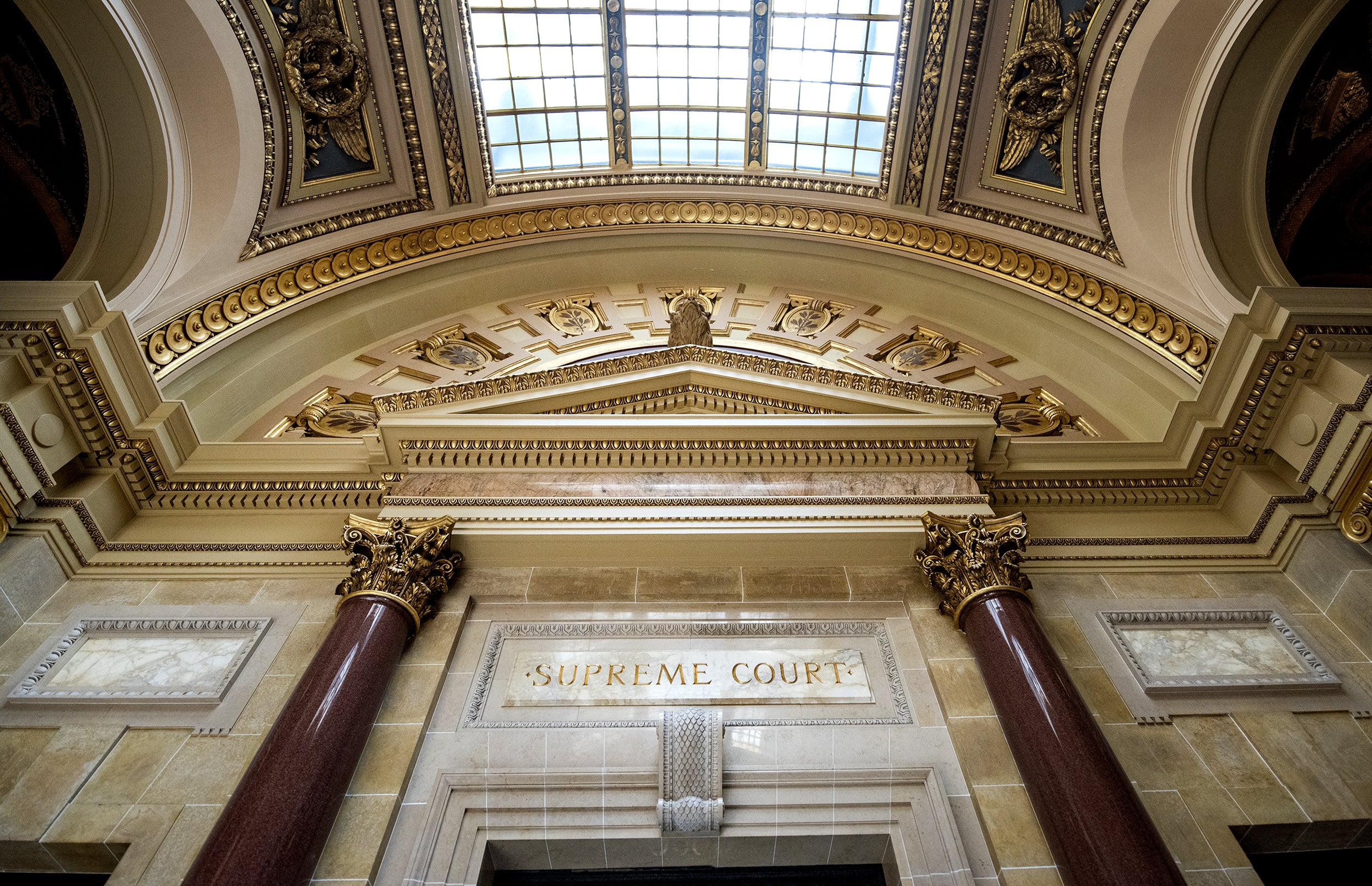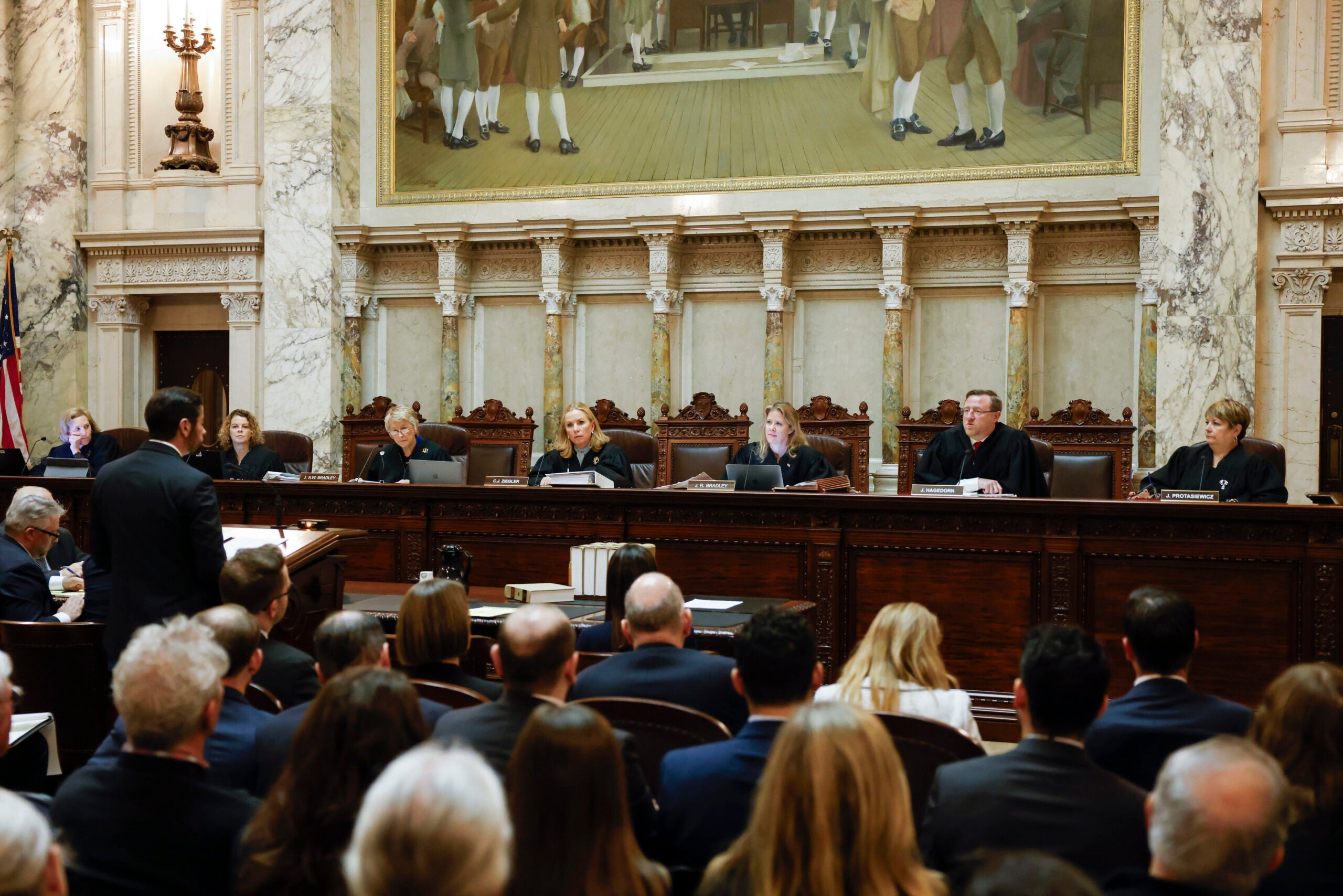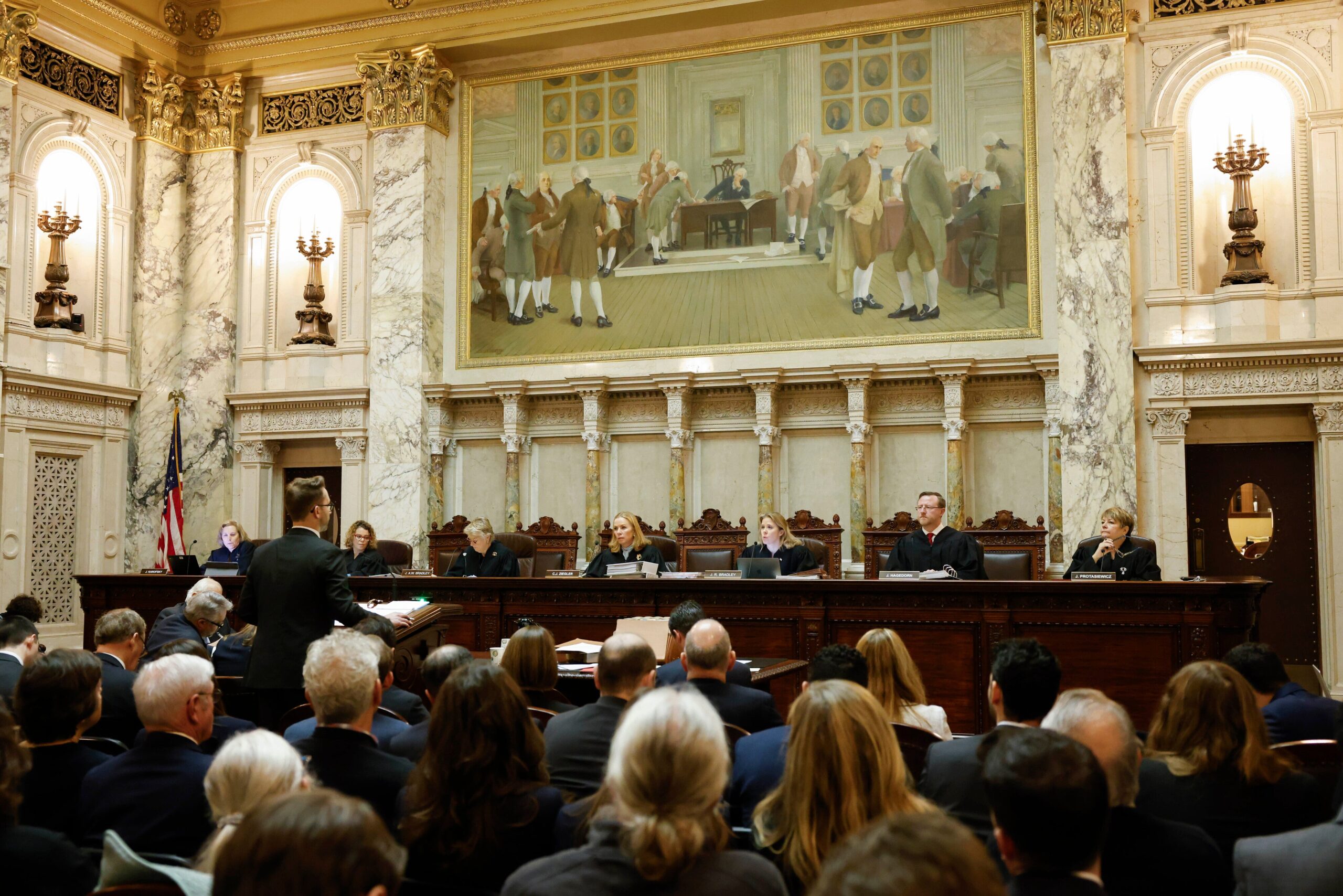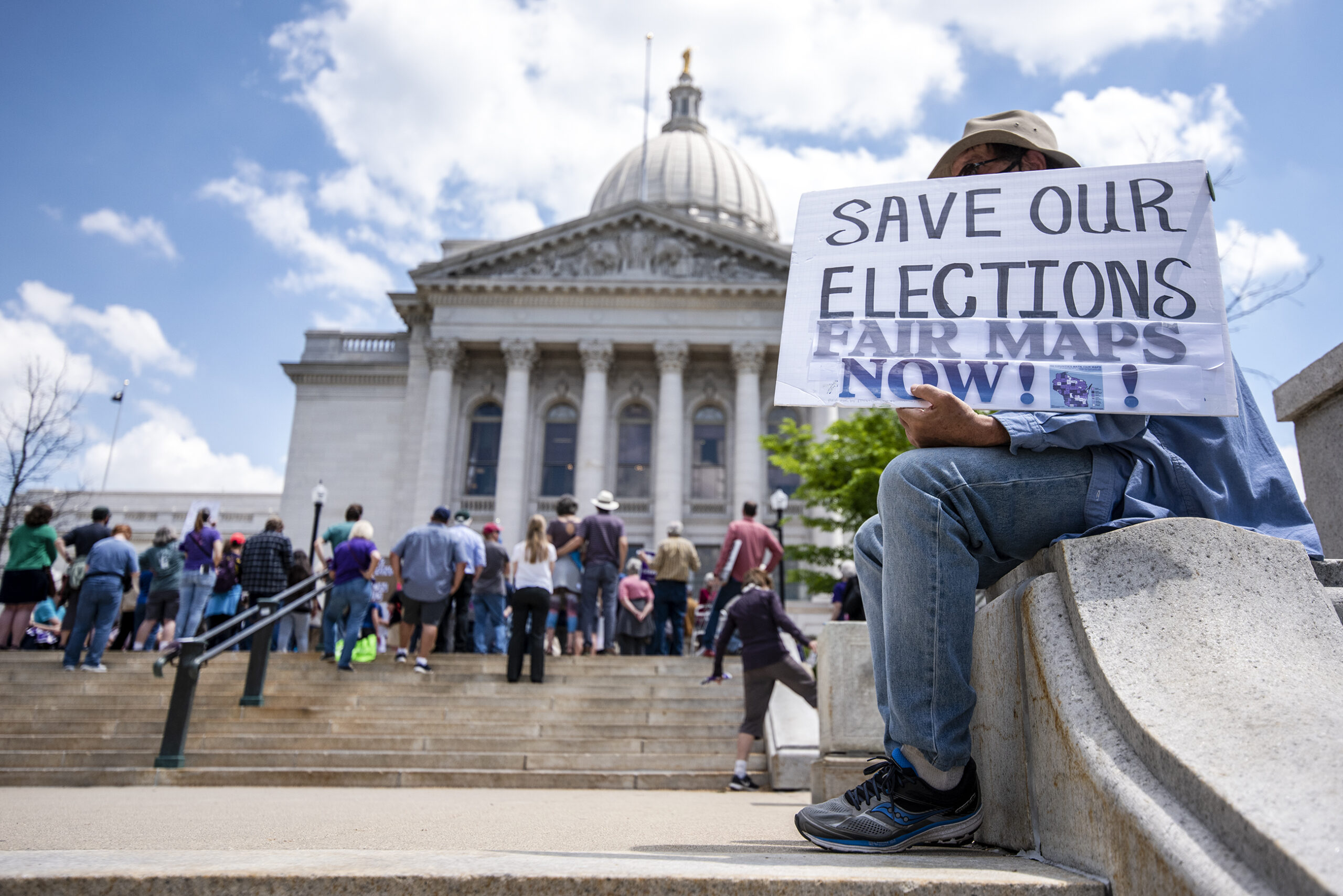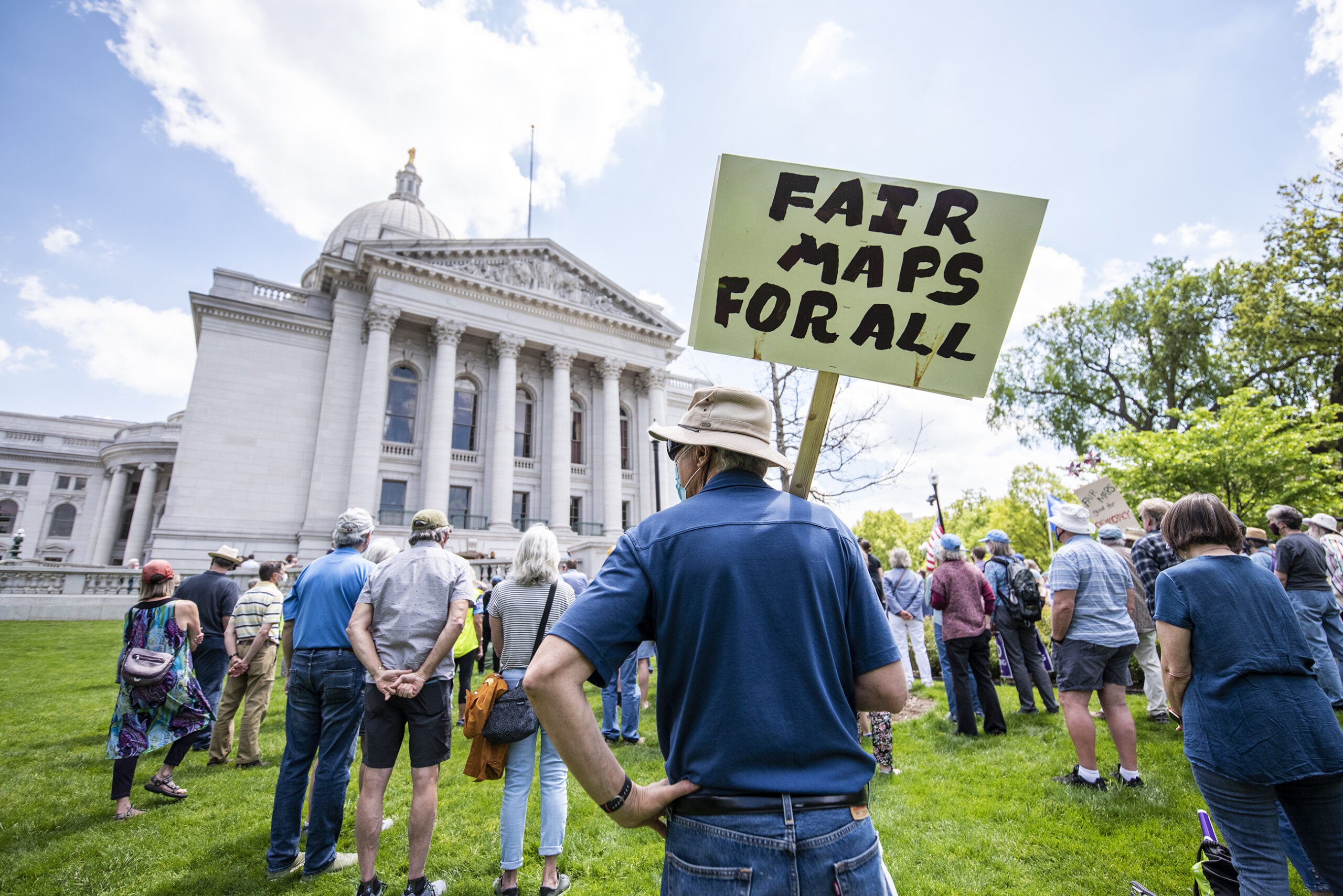The Wisconsin Supreme Court’s conservative majority handed Republicans a major victory in the legal fight over redistricting Tuesday, ruling the court would take a “least changes” approach to redrawing the maps Republicans passed in 2011.
The court’s majority also ruled it wouldn’t consider the partisan makeup of districts in an effort to make them more fair, which is another win for Republicans who’ve held big majorities in the Legislature for the past decade under the current map, even in years when Democrats have performed well statewide.
Writing for the court’s conservative majority, Justice Rebecca Bradley argued that because the 2011 maps had been passed by the Legislature, signed by a governor and survived federal lawsuits, they were the proper place to start in any redistricting lawsuits. It didn’t matter, she argued, if those maps favored Republicans.
Stay informed on the latest news
Sign up for WPR’s email newsletter.
“Just as the laws enacted by the legislature reflect policy choices, so will the maps drawn by that political body,” wrote Bradley. “Nothing in the constitution empowers this court to second-guess those policy choices, and nothing in the constitution vests this court with the power of the legislature to enact new maps.”
Bradley’s opinion echoed many of the arguments made by the conservative Wisconsin Institute for Law and Liberty (WILL), whose lawsuit called for a “least changes” approach to redistricting.
States redraw their legislative and congressional boundaries at least once every decade following the release of U.S. Census data, a process designed to keep districts roughly equal in population.
While that process moved swiftly when Republicans controlled both the Legislature and the governor’s office in 2011, courts drew the state’s maps in previous decades when state government was under split-party control. That was clearly where things were headed this time around with Republicans running the Legislature and Democrat Tony Evers in the governor’s office.
WILL filed its lawsuit in August, arguing that given the likely impasse in state government, the fairest way for a court to resolve redistricting was by mostly preserving the 2011 maps and adjusting only where necessary to address population changes.
Not only did the court’s conservatives agree, but the majority’s opinion closed the door to considering the partisan makeup of districts when changing a map. In other words, the court wouldn’t change the current map just because it skews more Republican than the state as a whole.
“Claims of political unfairness in the maps present political questions, not legal ones,” Bradley wrote. “Such claims have no basis in the constitution or any other law and therefore must be resolved through the political process and not by the judiciary.”
Joining Bradley’s opinion were conservative Justices Annette Ziegler, Patience Roggensack and Brian Hagedorn.
Hagedorn’s position was the most in doubt, having broken with conservatives on some high-profile cases, including a handful that sought to overturn President Joe Biden’s electoral victory in Wisconsin. While he wrote a separate concurring opinion, Hagedorn sided with conservatives on the big issues, arguing the judiciary’s role was limited in redistricting.
“As the majority opinion explains, the Wisconsin Constitution does not preclude the legislature from drawing districts with partisan interests in mind,” Hagedorn wrote. “The petition here — that we should use our equitable authority to reallocate political power in Wisconsin — is not a neutral undertaking. It stretches far beyond a proper, focused, and impartial exercise of our limited judicial power.”
In a dissent written by Justice Rebecca Dallet, the court’s three liberals argued that using the 2011 map as the starting point for resolving any redistricting dispute was inherently biased and would perpetuate a partisan gerrymander.
“It is one thing for the current legislature to entrench a past legislature’s partisan choices for another decade,” Dallet wrote. “It is another thing entirely for this court to do the same.”
Dallet said there was nothing “neutral” about a “least changes” approach to resolving redistricting, which she said would make the state Supreme Court an outlier.
“It doesn’t matter which political party benefits from the 2011 maps, only that we cannot start with them and maintain judicial neutrality,” Dallet wrote. “Moreover, a least-change approach risks entrenching 2011’s partisan agenda in future redistricting cycles.”
Wisconsin’s 2011 map has seen more than its share of lawsuits over the past decade, including one case that went all the way to the U.S. Supreme Court. That lawsuit argued Wisconsin’s map was one of the most extreme partisan gerrymanders in modern U.S. history — so extreme it violated the constitutional rights of Democratic voters.
While the U.S. Supreme Court never issued a final decision in Wisconsin’s lawsuit, it ruled in a later case that partisan gerrymanders weren’t justiciable in federal court. The state Supreme Court’s conservative majority wrote Tuesday that the same was true in state court.
“The Wisconsin Constitution Says Nothing About Partisan Gerrymandering,” read one of the headings in the majority’s decision.
Dallet took issue with the majority’s finding, saying it would give future governors and Legislatures a “green light” to gerrymander.
“There is no need for us to decide this question now,” Dallet wrote. “We have no claim of excessive partisan gerrymandering before us. We should wait until we do and then decide — with the benefit of full briefing from the parties — whether our Constitution protects a practice that is ‘incompatible with democratic principles.’”
Tuesday’s ruling was hardly the final say in Wisconsin’s redistricting lawsuits, but statements from groups with an interest in the case underscored its significance.
“We are pleased that the Court agreed with our arguments that political partisanship is not an appropriate factor to consider when redrawing district maps and that it should follow a least-changes approach in accomplishing its task,” read a statement from WILL attorney Anthony LoCoco.
“The majority of the state Supreme Court has once again demonstrated its loyalty is to the Republican Party, not the laws of Wisconsin,” said Sachin Chheda, director of the Fair Elections Project, a group that advocates for nonpartisan redistricting. “Whatever comes from this corrupt nonsense, if it’s not fair to our state, it shouldn’t be accepted by federal courts, and most importantly, it won’t be accepted by the people of Wisconsin.”
Democrats filed their first federal lawsuit in August on the day after the U.S. census released its redistricting data. While a federal court may be hesitant to overrule the Wisconsin Supreme Court on matters of state law, it could still address issues related to federal law and the U.S. Constitution.
For more on the history of redistricting in Wisconsin and how it impacts political power in the state, check out WPR’s investigative podcast series, “Mapped Out.”
Wisconsin Public Radio, © Copyright 2024, Board of Regents of the University of Wisconsin System and Wisconsin Educational Communications Board.

